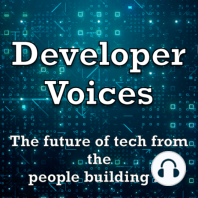48 min listen

Bitemporal Databases: What They Are and Why They Matter, with James Henderson of XTDB
FromDeveloper Voices
Bitemporal Databases: What They Are and Why They Matter, with James Henderson of XTDB
FromDeveloper Voices
ratings:
Length:
57 minutes
Released:
Jun 7, 2023
Format:
Podcast episode
Description
As a developer, it's crucial to understand the various types of databases available so you can choose the right tool for the job. In this episode, we're shining a spotlight on bitemporal databases with James Henderson, lead developer of of a new bitemporal database called XTDB.You may have already created an ad-hoc bitemporal database without realizing it, but James and his team have been hard at work building a custom database that's tailor-made for situations where having two notions of time are essential. Join us to learn about the what and why of bitemporality and explore the process of designing and building a database in Clojure.Ready to get started with XTDB? Visit https://www.xtdb.com/v2 to learn more.Want to get involved with the XTDB community? Head over to https://discuss.xtdb.com.Follow XTDB on Twitter at https://twitter.com/xtdb_com and Kris Jenkins at https://twitter.com/krisajenkins.Connect with Kris on LinkedIn at https://www.linkedin.com/in/krisjenkins/.
Released:
Jun 7, 2023
Format:
Podcast episode
Titles in the series (49)
The Open Source AI Revolution Begins Now... by Developer Voices